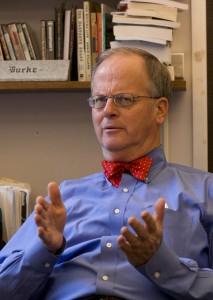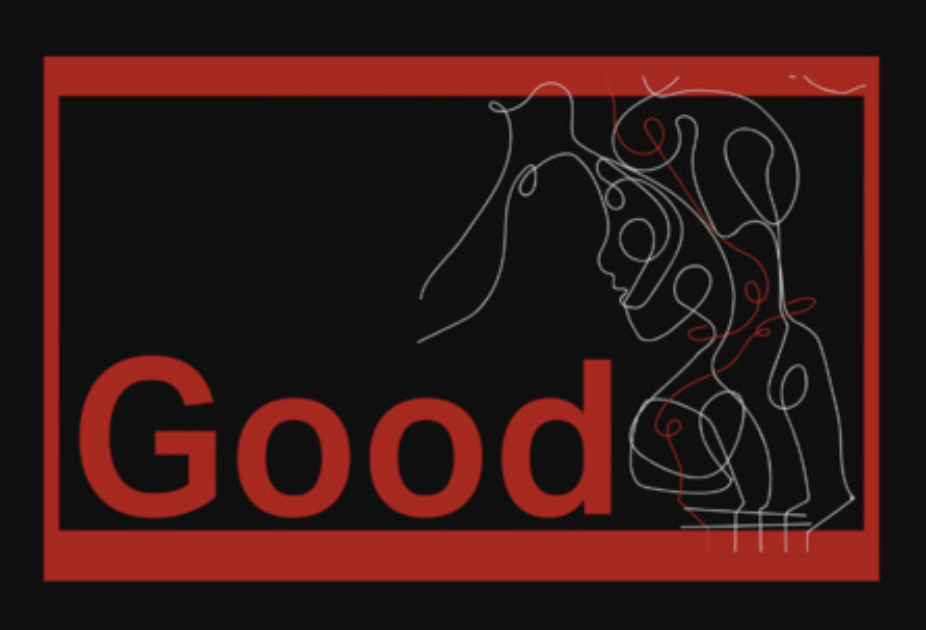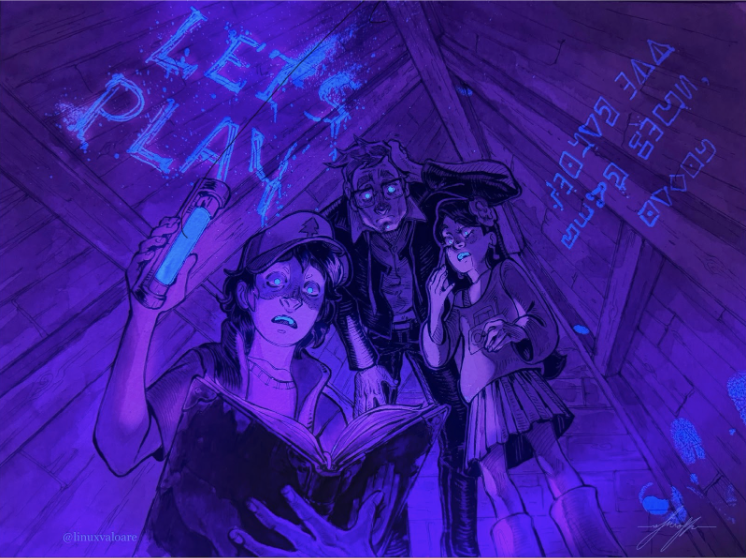Before teaching at Meramec, Burke worked as an army officer for 27 years.

Amber Davis
-Sr. Staff Writer-
Leaning back in a computer chair is Michael Burke, an English professor at STLCC-Meramec, adjusting his polka dotted bow tie. Displayed behind him, Burke’s army calendar hangs in his office
As he places his hands back on his lap, Burke says he is “not as formal as people think.” Burke’s normal attire includes a button-down shirt, a jacket and one of his 30 “signature” bow ties.
“I prefer dressing that way just because I think what we are doing in the teaching business is important enough to get dressed up for it,” Burke said. “I think a lot of people misinterpret as ‘Oh he must be very conservative or very formal.’ And that’s not my intention.”
Before teaching at Meramec, Burke worked as an army officer for 27 years. He said he joined the Army to pay for college. After graduation he planned to go to college for four years and then straight into military service for another four years. Burke said he stuck around because he said he realized he enjoyed it.
In the Army, Burke served as a linguistics officer where he went into his first Gulf War. He taught English at the U.S. Military Academy.
While Burke was a linguistics officer he made sure no one ran out of gas, ammunition, provided supplies, repaired parts and gave soldiers food and water when needed.
“I commanded a company when I was younger and a captain in Germany, where we stored and maintained equipment for war-type use,” Burke said. “And I had a bunch of civilians work for me. I was the first guy that took over a British unit that was going away and we had to basically hire people off the streets and make them mechanics. It was quite an experience.”
In the early 90s, Burke spent three years at the Pentagon as a compensation staff officer. His job was to keep track of the paying benefits for retired soldiers as well as their family members.
“I did enjoy [working at the Pentagon]. You realize how complicated the Department of Defense is,” Burke said. “People forget sometimes that there is over a million people in uniform plus about a million civilian family members and it operates in 140 countries. So you are setting policy for an organization that’s that big and complicated; you have to take in to account that there’s a lot of parts. It was a really interesting job.”
While working in the Army, Burke said he started falling in love with writing during his second tier at West Point at the U.S. Military Academy when he was 45. He said he had to write several different types of reports and studies where he considered himself a “reasonably good writer.”
“I had a master’s in English and I’ve been writing for years and years. But I think that was the first time I really felt that I understand how to put together a document, how to craft a sentence in the paragraph that someone would really want to read it,” Burke said. “You don’t need to be fabulous now, just better at the end.”
After retiring from the military Burke began teaching at Meramec. In his tenth year, he teaches courses ranging from English 020 to Honors Composition.
Asama Alamery, a former student of Burke’s English Composition 101, moved to America during the summer of 2009 from Iraq and said she was scared to go into a classroom with “native speakers.” Alamery said she was nervous that she would not do well in Burke’s class.
“During my first paper I received the highest grade in the class. I was shocked, I was so worried since I’m not a native speaker I would be very bad,” Alamery said. “His encouragement and his understanding of my culture made me feel comfortable to do better. He is just a wonderful teacher.”
Besides teaching, Burke said he also enjoys freelancing for a couple of publications. He enters in a contest every year at Urban Journal and has written book reviews for Army Magazine for 15 years.
“Urban Journal has a contest every year that they call Opinion Shapers. You submit a sample column and I’ve done that five times,” Burke said. “I’ve been successful enough to get a column accepted. Then you have to write two more over a year. I’ve done that several times.”
The thing Burke said he enjoys the most about teaching is watching his students’ progress throughout the years they attend Meramec.
“That’s the stuff that I really like the best, watching someone who really doesn’t know how smart they are, then over the time period they become really smart and they figure out how to be really good students and they succeed,” Burke said.










